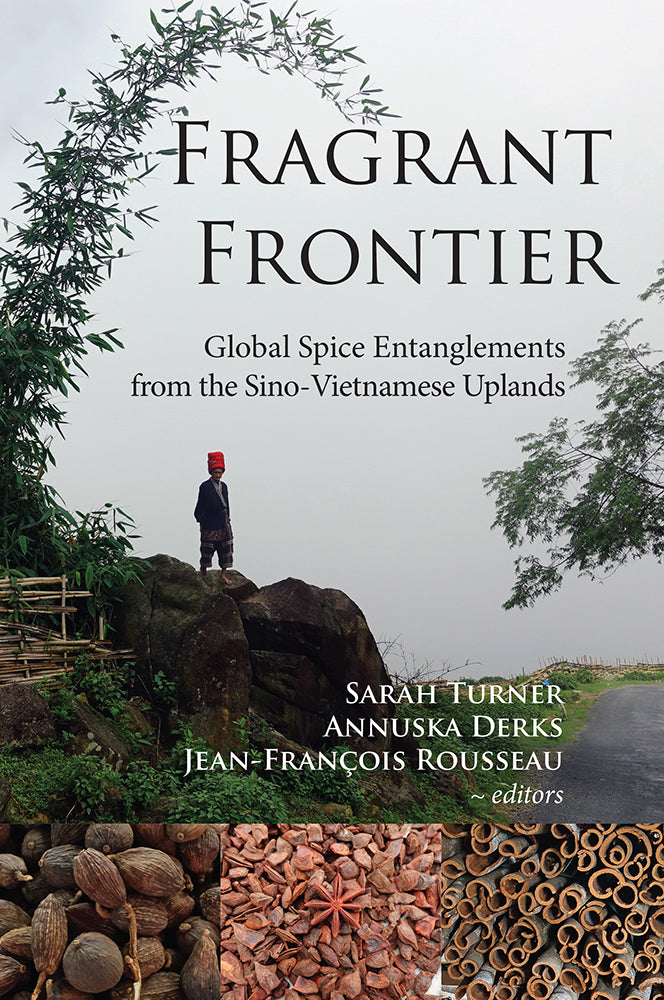Fragrant Frontier: Global Spice Entanglements from the Sino-Vietnamese Uplands
$38.00 SGD
edited by Sarah Turner, Annuska Derk and Jean-François Rousseau
Click below to explore story maps that illustrate the flow of cardamom, cinnamon and star anise in the Sino-Vietnamese borderlands!
Since its inception over two millennia ago, the spice trade has connected and transformed the environments, politics, cultures, and cuisines of vastly different societies around the world. The 'magical’ qualities of spices mean they offer more than a mere food flavoring, often evoking memories of childhood events or specific festivals. Although spices are frequently found in our kitchen cupboards, how they get there has something of a mythical allure. In this ethnographically rich and insightful study, the authors embark on a journey of demystification that starts in the Sino-Vietnamese uplands with three spices – star anise, black cardamom, and cassia (cinnamon) – and ends on dining tables across the globe. This book foregrounds the experiences of ethnic minority farmers cultivating these spices, highlighting nuanced entanglements among livelihoods, environment, ethnic identity, and external pressures, as well as other factors at play. It then investigates the complex commodity chains that move and transform these spices from upland smallholdings and forests in this frontier to global markets, mapping the flows of spices, identifying the numerous actors involved, and teasing out critical power imbalances. Finally, it focuses on value-creation and the commoditization of these spices across a spectrum of people and places.
This rich and carefully integrated volume offers new insights into upland frontier livelihoods and the ongoing implications of the contemporary agrarian transition. Moreover, it bridges the gap in our knowledge regarding how these specific spices, cultivated for centuries in the mountainous Sino-Vietnamese uplands, become everyday ingredients in Global North food, cosmetics, and medicines. Links to online resources, including story maps, provide further insights and visual highlights.
Sarah Turner is Professor of Geography at McGill University. She is a development geographer specializing in ethnic minority livelihoods, agrarian change, and everyday resistance in upland northern Vietnam and southwest China.
Annuska Derks is an associate professor and departmental co-director at the University of Zurich. She is a social anthropologist interested in social transformation processes in Southeast Asia, in particular in Vietnam, Cambodia, and Thailand.
Jean-François Rousseau is an associate professor at the University of Ottawa. He is a development geographer with research focusing on the relationships between agrarian change, infrastructure development, and ethnic minority livelihood diversification in Southwest China.
Publication year: 2022
248 pp / 229mm x 152mm
37 images (20 in colour), 6 maps, 3 tables
ISBN: 978-87-7694-314-1, Paperback
ISBN: 978-87-7694-313-4, Hardback
NIAS Press
WATCH: short films about where star anise and cinnamon originate.

